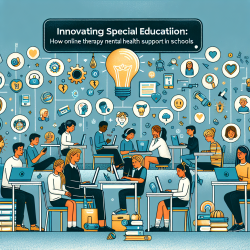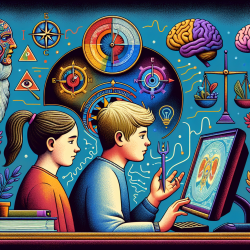As a practitioner dedicated to creating positive outcomes for children, it's crucial to stay informed about the latest research and evidence-based interventions. A recent systematic review, titled A Systematic Review of Scientific Studies on the Effects of Music in People with or at Risk for Autism Spectrum Disorder, offers compelling insights into the benefits of music therapy (MT) for children with Autism Spectrum Disorder (ASD).
The review analyzed 81 studies involving over 43,000 participants and found that music-based interventions can significantly improve social, emotional, and behavioral issues in children with ASD. Here are some key takeaways for practitioners:
- Enhanced Social Skills: Group-based music therapy can improve joint attention, eye contact, and turn-taking, fostering better social interactions.
- Emotional Understanding: Music can enhance emotional recognition and empathy, which are often challenging areas for children with ASD.
- Cognitive Benefits: Both active music-making and receptive music engagement have been shown to improve attention, memory, and verbal communication.
- Stress Reduction: Participation in music therapy can reduce anxiety, agitation, and aggressive behaviors, creating a more conducive environment for learning and development.
While the evidence is promising, the review also highlights the need for more rigorous, randomized controlled trials to validate these findings. Most studies had small sample sizes and varied methodologies, making it difficult to draw definitive conclusions. However, the consistent positive trends suggest that incorporating music therapy into your practice could be highly beneficial.
As you consider integrating music therapy into your treatment plans, keep in mind the following practical tips:
- Individualized Approach: Tailor the music therapy sessions to each child's preferences and needs to maximize engagement and effectiveness.
- Collaboration: Work closely with music therapists to design and implement interventions that align with your therapeutic goals.
- Ongoing Assessment: Regularly evaluate the impact of music therapy on each child's progress and adjust the approach as needed.
By leveraging the power of music therapy, you can create more holistic and effective treatment plans that address the unique challenges faced by children with ASD. For those interested in diving deeper into the research, I encourage you to read the original research paper: A Systematic Review of Scientific Studies on the Effects of Music in People with or at Risk for Autism Spectrum Disorder.










